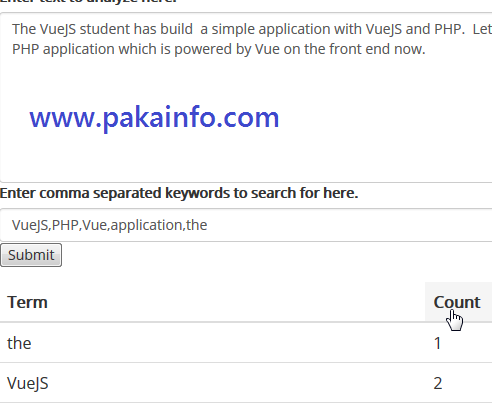

- #Convert string to array js pdf#
- #Convert string to array js code#
- #Convert string to array js plus#
- #Convert string to array js download#

call ( 'word', eachLetter => eachLetter ) // ['w', 'o', 'r', : ('string') wil do the trick Extra info: it's safer to use the spread operator (second method) rather than ('') (first method), because split() doesn't work with some uncommon I had a string that contained special characters like åæāă etc. Since this is just an article, I'll paste the result here so you can follow along.Īrray.

#Convert string to array js code#
Feel free to copy the code and paste in the playground, where you can hover on the variable to view the types. This is more evident if we use the TypeScript Playground. # TypeScript Test: Result array is not a string type 😱 To convert an async iterable to an array, use omAsync().
#Convert string to array js plus#
Which means we have an Array PLUS some string methods. To convert an ordinary object thats not iterable or array-like to an array (by enumerating its property keys, values, or both), use Object.keys(), Object.values(), or Object.entries(). So what we're doing here Object.assign(, string) it copying ALL of our string properties over to our new array. The key there is "copies all enumerable own properties". The Object.assign() method copies all enumerable own properties from one or more source objects to a target object One thing to note Object.assign is that it doesn't actually produce a pure array. The newer methods spread and om are better equipped to handle these and will split your string by grapheme clusters 👍 # A caveat about Object.assign ⚠️
#Convert string to array js pdf#
Your goal is to FIRST find some routines that can take HTML, and convert that HTML into valid PDF format.This is what's called grapheme clusters - where the user perceives it as 1 single unit, but under the hood, it's in fact made up of multiple units. Leave out the byte stream issue - you need code to convert HTML to a pdf format, and NONE of the issues in regards to some byte array matters here one bit. You will need to adopt some code to convert that byte stream which you note is in HTML format, and you need to take that resulting markup, and convert it into a valid PDF. Well, as noted, the byte steam is going to be a word, PDF, Excel or even a png file.ĭealing with a byte stream has quite much ZERO do to with converting some source format to another format.
#Convert string to array js download#
So above can fix and address the "large" file download issue.

If not, then you need some type of PDF library to convert whatever source format the byte steam is into a valid PDF format before any of the above will work. It probably possible to do a loop, and using response.binarywrite the byte array in chunks, but the above save as a file and using transmit file probably is a better choice.Īnd once again, in closing? That byte stream you have is ALREADY assumed to be in a valid PDF file format. So, if you have a byte array, then FIRST save it to the local file system - you have to make up or have a file name.Įg this: // byte MyFileData = whatever byte streamįile.WriteAllBytes(sFileWithPath, MyFileData) So, in your case, save the byte stream you have as a file, and then use above transmit file - it will "chunk up" the data into smaller byte sized bits and parts. Response.AppendHeader("Content-Disposition", "attachment filename=" + sFileNameOnly) Response.AppendHeader("Content-Length", ()) String sMineType = MimeMapping.GetMimeMapping(sFileWithPath) įileInfo sFinfo = new FileInfo(sFileWithPath) // get lengh of file String sFileNameOnly = Path.GetFileName(sFileWithPath) This code: string sFileWithPath = (File.Exists(sFileWithPath)) This will not use huge memory, and "stream" in chunks to the browser side as a legitimate file download process. Save the byte stream to disk as a pdf file, and THEN using transmit file. Well, as you are noting, if the buffer size is rather large, then your blowing out the browser capacity here. Assuming this byte stream is a 100% valid PDF byte stream?


 0 kommentar(er)
0 kommentar(er)
